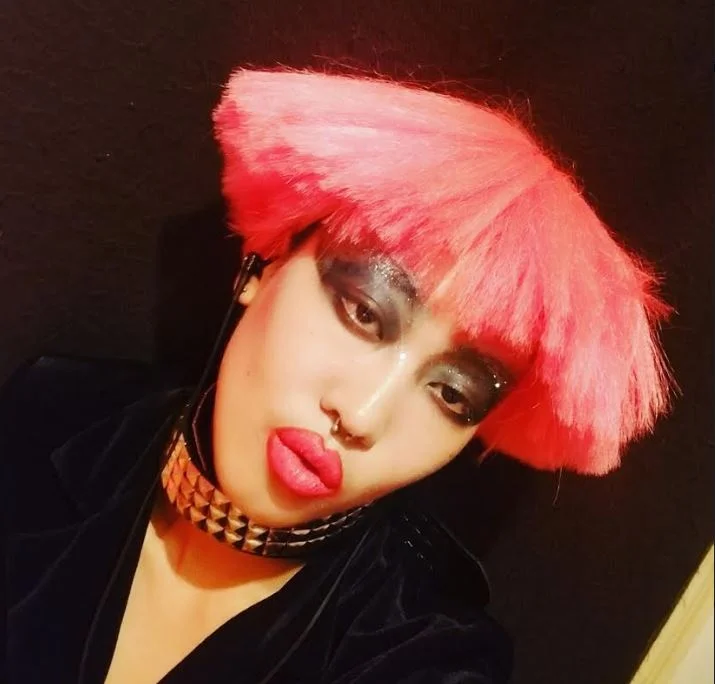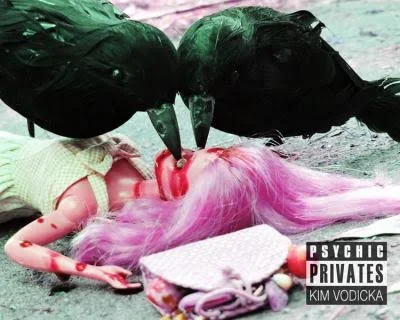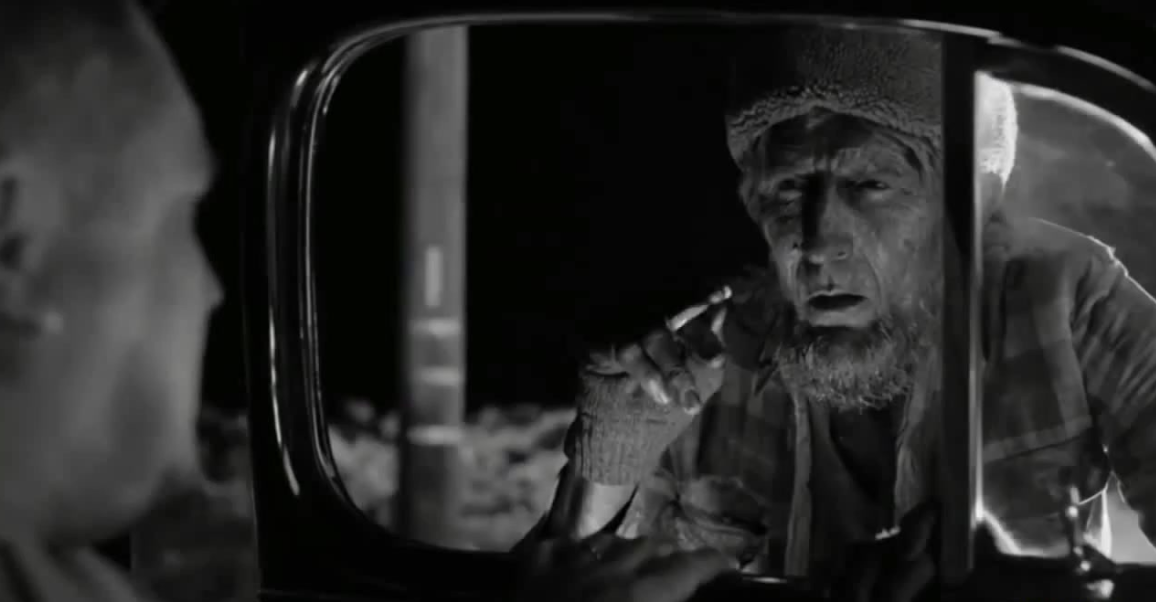BY LISA MARIE BASILE
I am going to update Instagram today.
I take a photo, open up Facetune, smooth out anything that doesn't seem to have a dreamy finish. I then apply a filter, something hazy, maybe. I modify the intensity, the undertone, I make it all a little less real. It's a dreamscape, and it lives in a square--changed from one thing to another, to abide by the tone and essence of my—what is it?— brand. But it’s also a work of art, a digital extension of the way I see my work, my voice, my vision. It’s a window in. A tableau. A diorama, really.
**
Someone recently said to me, “Oh my god, I’m so jealous of your Instagram.” It struck me as odd. I certainly don't think my Instagram is anything special (but what does it say about me that I think that? After all, I do try, to some extent). Instagram envy exists because, for some reason, our online personas are largely expected to be groomed and palatable, inspired and playfully irreverent, gritty but not too gritty, curated but authentic, real but also aspirational. What the fuck? Unless you're off social media, it's hard to entirely avoid that sort of internalized pressure—especially for those of us who seek acceptance, community, and connection.
Despite our good intentions, we're expected, as is written in The New York Times, to ooze a certain fabulousness—the kind that suffocates others. There's also the issue of narcissism, developed as some Pavlovian response to likes. Then there's also the issue of accidental or purposeful Insta-bragging.
Is that what she means I'm good at?
Today I have 3,251 followers. It’s not a lot, certainly not if you think about the influencers among us, but it’s more than other people. I don't exactly know what I'm projecting or what people are swimming over to find. I know what I hope they're coming for. And (here's the uncomfortable truth): Sometimes I worry about feeding the beast, feeding that want, scoring the follow. Mostly I don’t. I think?
Today I wonder what “follower” means. What “influencer” means, what “influence” really is, and what it means to exist in a digital space. Are our souls out there, in that ether, or is it some heartless, dead version of ourselves lying, performing, and misrepresenting who we really are? Does something die when we hit "post"? Is this digital body capable of nuance, of perversion, of sin, of outrageously huge love? Of song? Of touch?
Some say yes, some say no. I say it’s both. Our digital identities make space for real-life change. I’ve met best friends, soulmates, fellow dreamers, creators, and supporters online. I’ve also come across toxicity and insincerity and competition, along with too many proverbial trolls under the bridge. Trolls are decrepit beings who either decide to purposefully attack others, or they're self-appointed officers of this wild electric landscape. They have plenty of hobbies: They like to misconstrue ideas, assign blame, correct, spy, fail to see nuance, whatever. They're out there, hoping for a response, a treat—something to feed on and suckle and spit back.
There's a whole world out there. Who is to say what is really good or bad?
**
In writing my book, Light Magic for Dark Times, it felt like I had to create a concrete, consistent digital narrative—something that perfectly, beautifully, accurately and successfully reflected my book. I am an authority, and therefore I needed to be authoritative. And also pretty, consistent, likeable, shareable, and engaging.
I struggled with this—a lot. I’m a poet, a writer, a witch, a community member, a New Yorker, a workshop leader, a swimmer, a beach-goer, a goth, a book lover, a secret pop music enthusiast, a Mediterranean-American, a metal head, an essayist, a chronic illness sufferer, a former foster youth, an advocate, a survivor, a realist some days, an optimist some days, an agnostic, a Scorpio, a daughter, a dancer, and a traveler. How do I showcase all of that? How does any of it shine through? Does it have to, or am I just a sliver? And if I’m a sliver online am I a sliver IRL? How do I make myself into a brand? Have I?
How do you identify? How do you collapse all of yourself into one persona online? I was told to be marketable, to pick three ‘selves’ and stick to them. I hesitated. I am positive that I haven't done this. Aside from that tiny Instagram bio, I'm a rebel. In a way, I have failed my book. I have failed my "brand." I don't know how to be me, to market me, to show truth, and to promote books or offer up my writing (or whatever) at the same time. And at the same time, I'm fine with it. I can only do what I can do. It so happens that I like pretty pictures but I don't want to be beholden to them.
This is an anxiety everyone I know actually has, even if they're not talking about it out loud. Some have told me about the great lengths they go to be Insta-marketable. They buy followers. Write up a strategy. They only take certain kinds of pictures. They buy books like Read This if You Want to Be Instagram Famous. And that's easy to understand: We're inside of the eye of the storm. It's nearly impossible to get space enough to know what we feel about something as personal as revealing who we are to the world.
Also, it's fun. No one said it wasn't. Humans are social creatures, after all—except that in the digital landscape, it's sort of an uncanny valley.
I want to talk about my book, of course. I have to. I want to talk about my magical life, my use of ritual, my love of candle and herbs, my love of writing as spell-work. But can I lose something sacred by showing too much? When do I stop being a writer, or a witch, or a poet, and start becoming a brand? Can one be both? Should one be both?
I also wanted to show life as someone with a chronic and degenerative disease. And I wanted to show all that glamorous shit, like my travels—the huge, green sea, the cows in the deep South, the way people stand around smoking cigarettes on corners in Italy, a balcony in Spain. But then I wanted to show something simple, like a rainy day, a picture of my mother, someone who has recovered and fought and recovered again, a book of poetry. A picture of myself eating ice cream.
I struggle with making it all add up—the perfect caption, the right message, being relateable but also mysterious. I think I want none of that. I don’t have the synchronicity of a branding agency or the energy, time, or desire to mimic one. I could post once a day—and it could fit a narrative aimed at whatever goal, but the anxiety comes from having too many selves and no clear way to condense it all into one digital space.
If you can do that—if your digital self sells a product or sells your book or simply shows who you are, or your most important aspects (or the aspect you feel like sharing with the world), that’s wonderful. I follow and engage with people who are the subject of “Instagram envy” daily. Sometimes I even feel it.
And, strangely, bewilderingly, I have been told that I myself am seen as one of those people.
It’s hard to stand outside of yourself and see who you’ve become, all the selves you’ve projected outward. It’s hard to decide what to share and what to keep.
At what point does the digital and the flesh fold into one another and simply exist, perfectly, without anxiety or dread or an existentialist confusion?
**
I think back on the episode of the 2016 episode of Black Mirror, “Nosedive.” It’s about a status-obsessed world completely and totally ruled by social media. It’s ostensibly a take-down of social media culture (the way we position our cups for the perfect shot, the way we live for the capture instead of the moment, the way we hyper-reveal ourselves in the name of acceptance). It made me sick—literally—to see a world in which our value and worth was created by some digital projection of enoughness, where our very currency, our very capability and opportunity, was linked to likes and approval.
It’s not exactly the reality, yet it’s not exactly far off. We can still rent a car if we’ve only got 25 followers, but we do subconsciously assign worth to someone with more. Don’t we?
When it comes to making art, expressing yourself, selling something, promoting your work, or simply sharing a part of yourself which you find beautiful, meaningful, or honest, there is almost no doubt about it: Social media can be helpful.
When we post something that adds to conversations and ideas and resistance of the status quo, something that forces the world to look an ugliness or reality in the eyes, we are doing a good thing. When we reclaim identity and spread messages of hope and unity, we are making the world better. When we rally digitally and then come together in real life, we win. When we can educate, learn, reform, and represent, we win. When we debunk illnesses like body myths and when we share our stories of food and culture and hope we are building a net of love that spans cities and countries.
But what happens when we spend time curating our feed? Do we unintentionally relay messages of productivity and success or worth? Do we somehow let other “less important” things fall to the side because they’re not grammable? Do we illicit in others (and, equally importantly, ourselves) a sense of needing to be around to update, to always be "on," to always be likeable, to always be good enough, to always be beautiful, to always be a provider of “great content?”
What happens if we stop? If the photo doesn’t fit the feed? Does our book go unsold? Does our projected self die a little inside? Does our value decrease in some way we we don't even know how to express?
There is also a privilege in being influential via social media. What does it mean? Or, more importantly, what doesn’t it mean? How can we all access that influence ethically—without harm to others or ourselves?
**
Today I’m going to update my Instagram. I’m going to share a piece of myself for promotional purposes—because I want you to learn about my book. There it is. That's true.
But that same post is also about my trauma, my fear, my wound. And about my hope. My light. My love. My resilience. My gratitude. My offering.
The trick must be to lean into the wilderness of it with the best intentions, I think. To recognize, like in real life, that we can't be or do everything perfectly all at once. That it's okay to not always add up or be on. To not always be palatable or perfect. To just exist.
To sit back and think about what conversations like these really mean—that we're even spending time having them. What are we missing out here in the real world when we are online? What nuance? What gravity? What splendor?
How do we make room for it all? The balancing of half real—half curated? Humans have always found a way. But I’m not sure we’ve figured this out yet. Learning to balance our many selves—and the culmination of them all: us—takes time, and it’s worth being cognizant of.
————
Lisa Marie Basile is the founding creative director of Luna Luna. She has written for the New York Times, Sabat Magazine, Narratively, Grimoire magazine, Venefica, The Establishment, Refinery 29, Bust, Hello Giggles, and more. She is the author of Light Magic for Dark Times and poetry collections Andalucia and Apocryphal, as well as the forthcoming Nympholepsy. Lisa Marie earned a master's degree in writing from The New School. She lives in New York City.













































